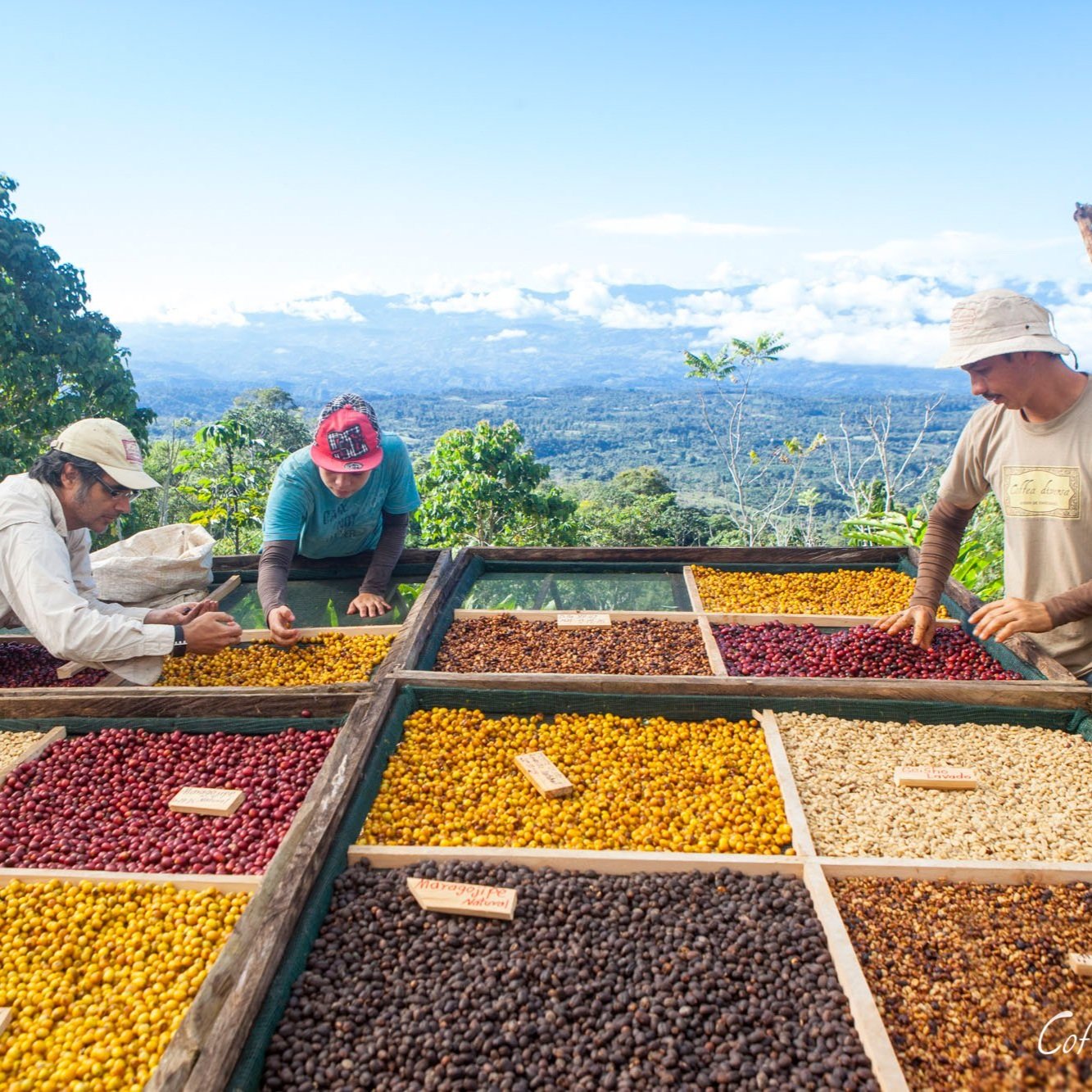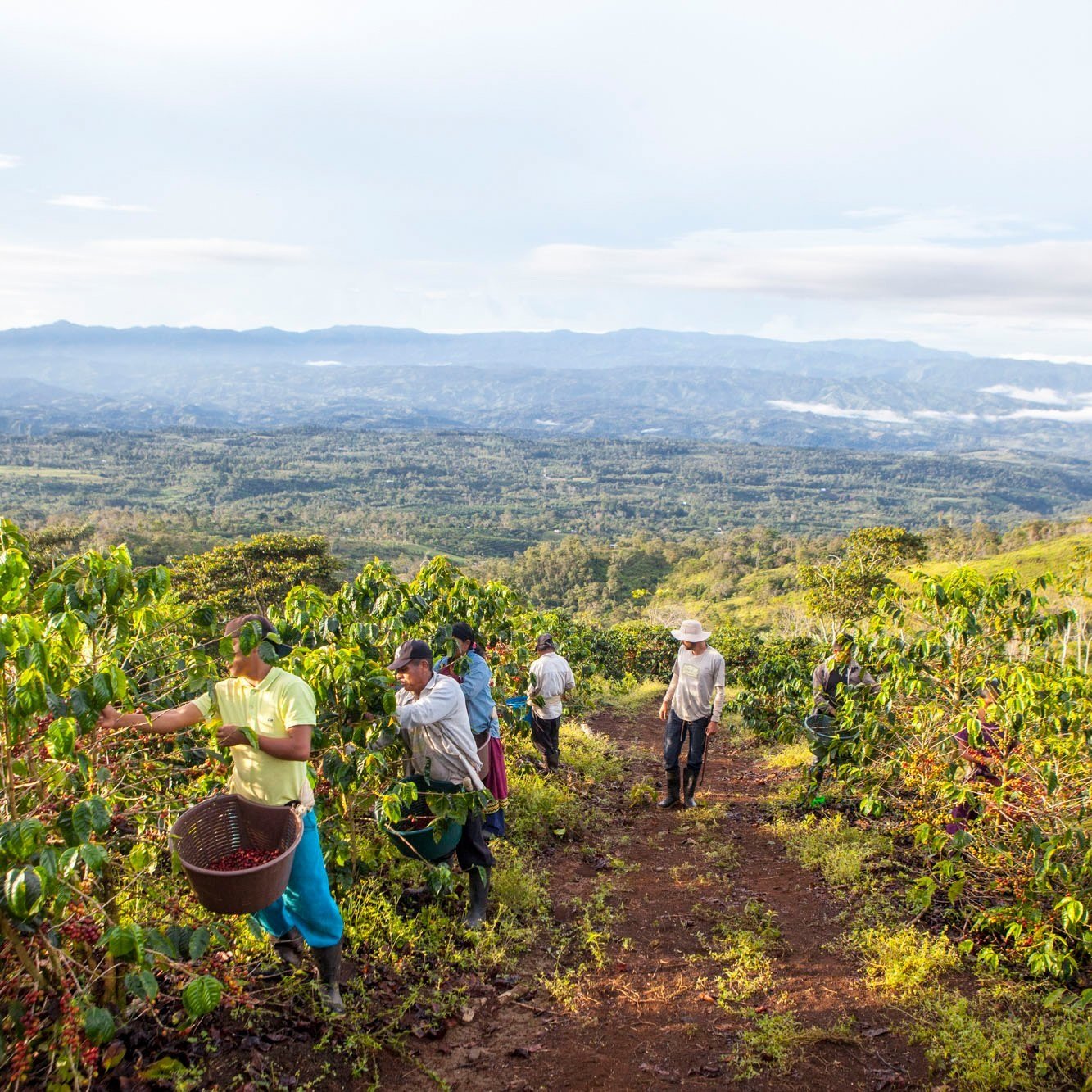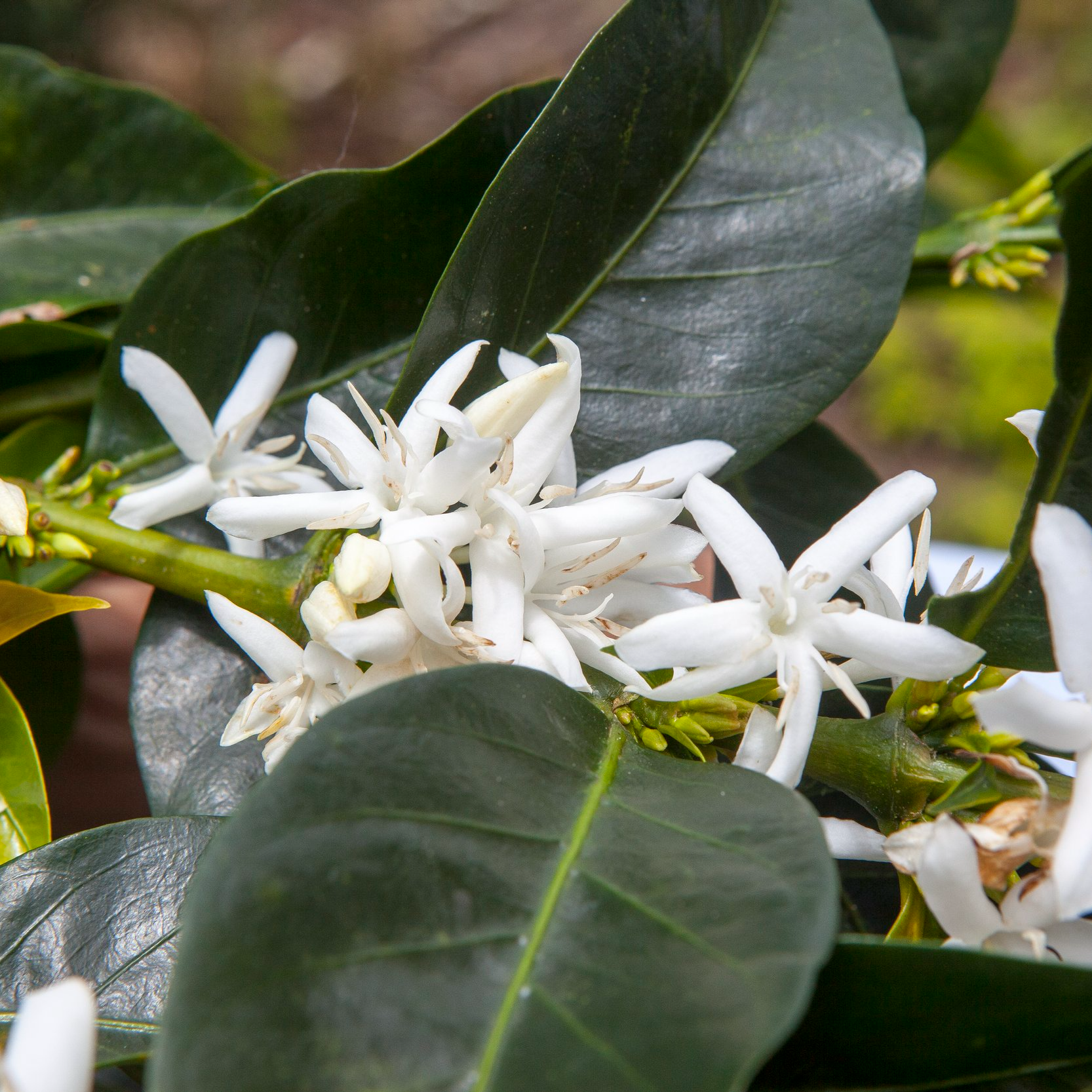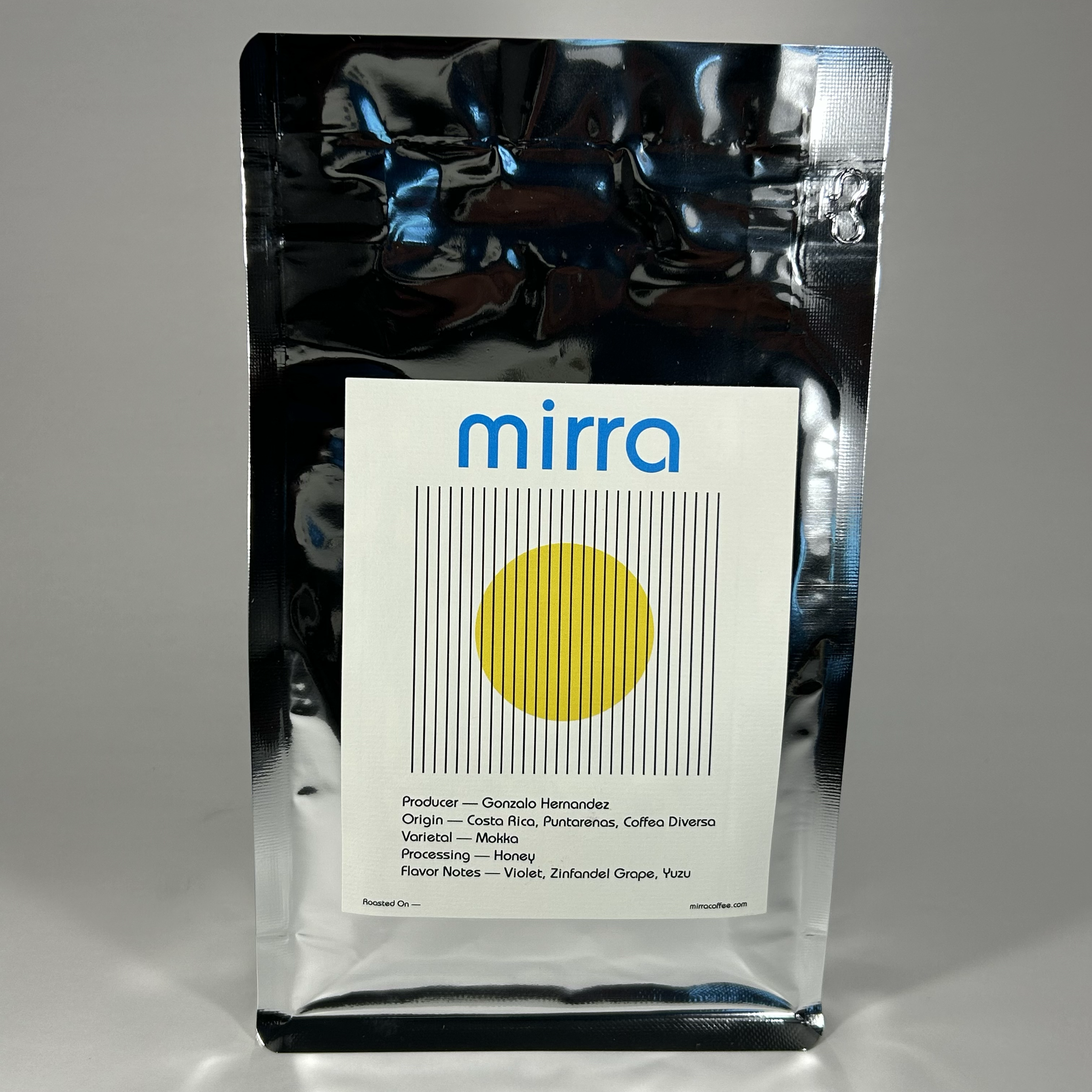 Image 1 of 3
Image 1 of 3

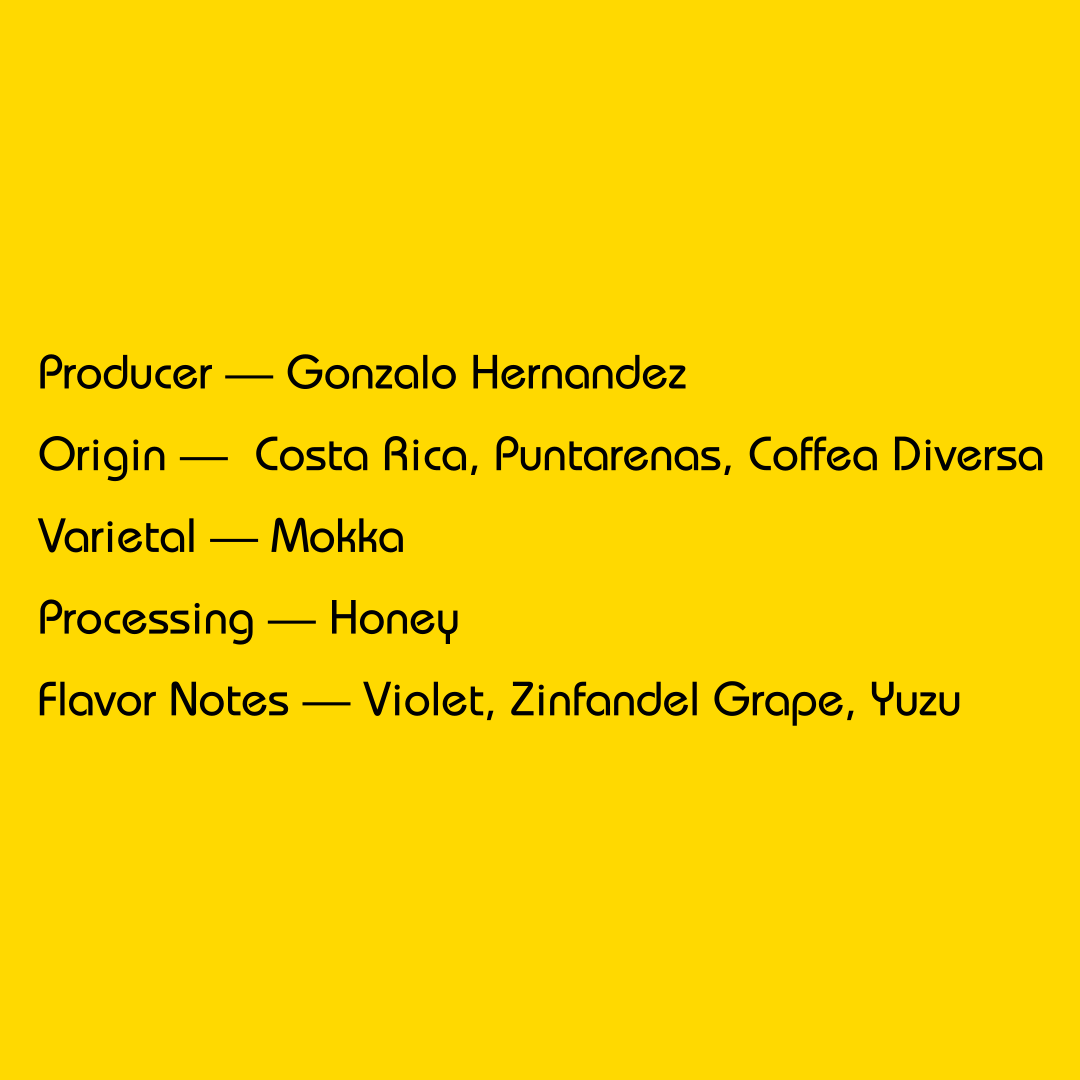 Image 2 of 3
Image 2 of 3

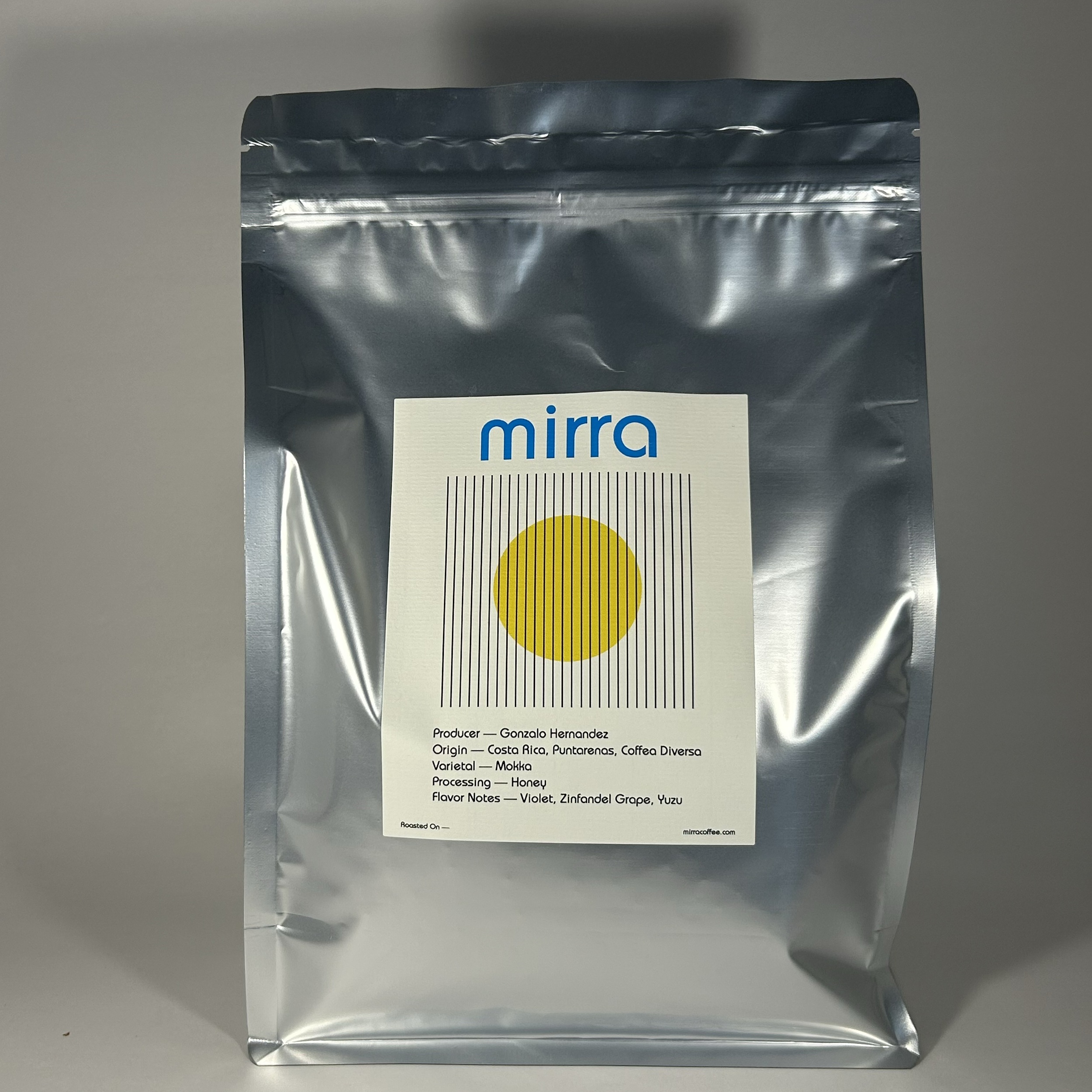 Image 3 of 3
Image 3 of 3




Costa Rica Gonzalo Hernandez - Mokka
When we first blind-cupped this honey mokka from Gonzalo Hernandez of Coffea Diversa, it immediately stood out from all other samples on the table for its sweetness and clarity, and we knew that we had to have it, whatever it was. At the and of the cupping, upon revealing the details of this lot, we couldn’t have been more surprised—it was a mokka! Along with java, mokka had become one of our least favorite varietals, with most we had experienced before tasting bland, and reminiscent of freshly baked pretzels—not a characteristic we look for in our offerings. To find such complexity and abundance of fruit and florals in a mokka was a surprising and beautiful thing, and we couldn’t be more glad for the opportunity to feature this lot on our menu this season; it’s a literal mind-changer. When taking a first sip, we’re struck initially by a bouquet of delicate violet florals which linger above throughout the experience, as a sustained highlight. This coffee also offers up tempered, refined purple fruits most reminiscent of zinfandel grape as a lowlight, all of which is brought into harmony with the rest of the cup by a zing of bright, clean yuzu.
Coffea Diversa is a super unique project, initially begun by Gonzalo Hernandez in the Central Valley region of Costa Rica in 2004. With over 800 specimens of different varietals, many of which are commercially cultivated on their farm, Coffea Diversa not only possesses the largest private collection of living coffee varietals and cultivars, but grows the most diverse range of varietals of any other farm that we’re aware of. For this reason, Coffea Diversa is the only farm in the world to commercially grow many varietals that can be found among their offerings. Given the diversity and scope of varietals they cultivate, they often refer to themselves not as a coffee farm, but rather as a coffee garden. How Gonzalo manages to keep on top of such a wide array of different varietal lots while attaining the uncommonly high quality that he does is frankly a big mystery to us, but we applaud and thank him for his care and intentionality which manifest directly in just how good we find his coffees to be. The lots we purchased from Gonzalo were all grown in the Puntarenas region between 1.500 and 1.700 masl. All coffee on the farm is grown in shade provided by cedar, avocado, and banana trees.
Mokka is a natural dwarf mutation of typica native to Yemen—hence its name, after the famed port at Mocha. It is one of the oldest varietals, and while initially thought to be its own species, has been confirmed to be a varietal of C. Arabica. The cherries and seeds of the mokka plant are incredibly small, making it one of the lower-yielding varietals, and significantly increasing the labor involved in harvesting. Today it remains an incredibly rare varietal due to these low yields, and is primarily grown in Hawaii and Brazil, though it has been planted in more countries in recent years.
All coffee is sold whole-bean to reduce oxidization, and increase the longevity of volatile aromatic compounds.
When we first blind-cupped this honey mokka from Gonzalo Hernandez of Coffea Diversa, it immediately stood out from all other samples on the table for its sweetness and clarity, and we knew that we had to have it, whatever it was. At the and of the cupping, upon revealing the details of this lot, we couldn’t have been more surprised—it was a mokka! Along with java, mokka had become one of our least favorite varietals, with most we had experienced before tasting bland, and reminiscent of freshly baked pretzels—not a characteristic we look for in our offerings. To find such complexity and abundance of fruit and florals in a mokka was a surprising and beautiful thing, and we couldn’t be more glad for the opportunity to feature this lot on our menu this season; it’s a literal mind-changer. When taking a first sip, we’re struck initially by a bouquet of delicate violet florals which linger above throughout the experience, as a sustained highlight. This coffee also offers up tempered, refined purple fruits most reminiscent of zinfandel grape as a lowlight, all of which is brought into harmony with the rest of the cup by a zing of bright, clean yuzu.
Coffea Diversa is a super unique project, initially begun by Gonzalo Hernandez in the Central Valley region of Costa Rica in 2004. With over 800 specimens of different varietals, many of which are commercially cultivated on their farm, Coffea Diversa not only possesses the largest private collection of living coffee varietals and cultivars, but grows the most diverse range of varietals of any other farm that we’re aware of. For this reason, Coffea Diversa is the only farm in the world to commercially grow many varietals that can be found among their offerings. Given the diversity and scope of varietals they cultivate, they often refer to themselves not as a coffee farm, but rather as a coffee garden. How Gonzalo manages to keep on top of such a wide array of different varietal lots while attaining the uncommonly high quality that he does is frankly a big mystery to us, but we applaud and thank him for his care and intentionality which manifest directly in just how good we find his coffees to be. The lots we purchased from Gonzalo were all grown in the Puntarenas region between 1.500 and 1.700 masl. All coffee on the farm is grown in shade provided by cedar, avocado, and banana trees.
Mokka is a natural dwarf mutation of typica native to Yemen—hence its name, after the famed port at Mocha. It is one of the oldest varietals, and while initially thought to be its own species, has been confirmed to be a varietal of C. Arabica. The cherries and seeds of the mokka plant are incredibly small, making it one of the lower-yielding varietals, and significantly increasing the labor involved in harvesting. Today it remains an incredibly rare varietal due to these low yields, and is primarily grown in Hawaii and Brazil, though it has been planted in more countries in recent years.
All coffee is sold whole-bean to reduce oxidization, and increase the longevity of volatile aromatic compounds.
